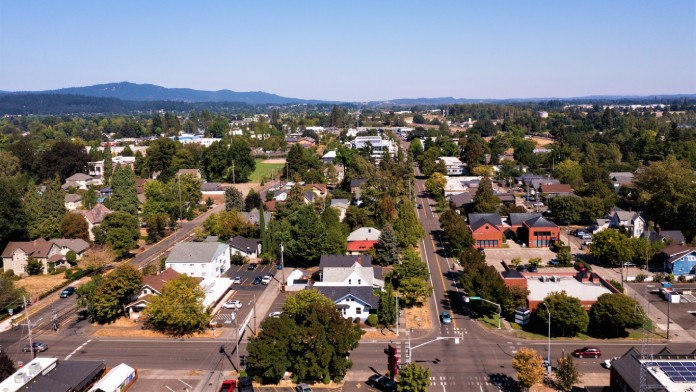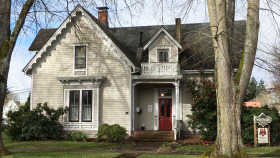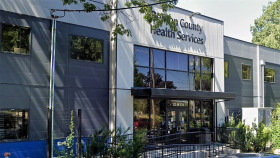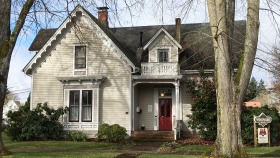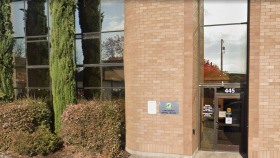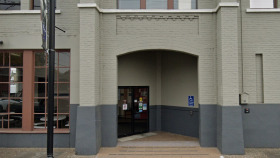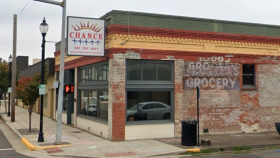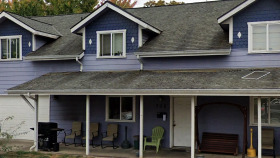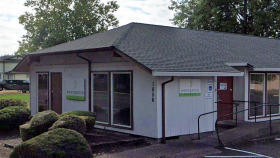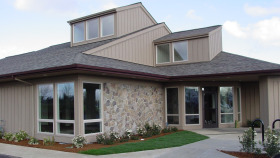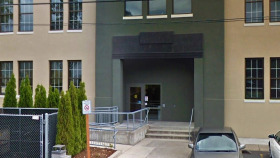Substance Abuse Statistics in Corvallis, OR
To better understand the prevalence of drug and alcohol use in Corvallis, here are some of the statistics for Benton County over the past few years:1
24% of driving deaths involve alcohol-impaired driving
6 per 100,000 people die from a drug overdose
Oregon State University is located in Corvallis. Here are some statistics about drug and alcohol use on campus in 2020:3
124 alcohol-related incidents
13 drug-related incidents
418 alcohol-related student conduct violations
124 drug-related student conduct violations
29% of students reported using cannabis in the past 30 days
69% of students reported using alcohol in the past 30 days
Levels of Care for Rehabs in Oregon
Addiction treatment includes a spectrum of care that ranges from intensive to informal. The various levels of care are designed to meet the full range of addiction needs.
Detox
This is often the initial step of treatment, which is completed before you move forward with recovery services. It is the process of safely clearing your system of all drugs and alcohol. Detox occurs in a supervised setting such as a hospital or inpatient facility, where withdrawal symptoms can be managed.
Residential or Inpatient
Residential or inpatient treatment involves living at a facility and receiving 24/7 care and supervision. This is the most intensive treatment setting. Methods of treatment usually include group, family, and individual therapy. You may also receive medication and participate in recreational therapy.
Partial Hospitalization Programs (PHPs)
PHPs often involve many of the same treatment methods used for inpatient care. The difference is, you only stay at the facility during treatment times, then return home.
Intensive Outpatient Programs (IOPs)
This type of program is a step down from partial hospitalization. IOPs provide several hours of treatment over several days per week, allowing you to live at home and fulfill other obligations such as work or school.
Standard Outpatient
Standard outpatient programs are the least restrictive treatment option. They involve one or two hours of care per week. Oregon residents who have mild addictions and strong support systems are good candidates for this type of treatment.
Aftercare
Also called relapse prevention, aftercare starts once you have completed a formal inpatient or outpatient program. It provides ongoing support, such as 12-step meetings, transitional housing, or therapy.
How to Pay for Addiction Treatment in Corvallis, Oregon
Private Insurance
By law, all insurance companies are required to cover substance abuse treatment to at least some extent. However, plans differ in their coverage, so Oregon residents should contact their provider to learn more about specific coverage under their plan.
Oregon Medicaid
Oregon’s Medicaid program is the Oregon Health Plan (OHP). Several programs are available for low-income Oregon residents through OHP. Plans include coverage for children and adults, pregnant adults, and adults who are eligible for both Medicaid and Medicare Part D. To qualify, individuals must meet income and residency requirements.5
Oregon Medicare
Medicare is a health insurance program funded by the government that provides coverage for Oregon residents aged 65 and older, as well as individuals with certain disabilities. Certain Medicare plans provide coverage for various types of addiction treatment. Not all rehab facilities accept Medicare, so it’s important to confirm accepted methods of payment before starting a program. The Oregon Senior Health Insurance Benefits Assistance (SHIBA) provides free Medicare information to seniors and their family members in Oregon.
TRICARE in Oregon
TRICARE in Oregon (West region) provides health insurance for veterans, U.S. military personnel, and their families. Coverage includes addiction treatment services; however, this coverage varies by plan.
Sliding Scale Rehabs
Oregon residents who receive treatment from a sliding-scale rehab pay only what they can reasonably afford based on their income. To qualify, participants must usually provide proof of income.
IHS-Funded Drug Rehabs
The Indian Health Service (IHS) is a federally funded health program for indigenous people. Native Americans and Native Alaskans who need addiction treatment can receive low-cost or free services under this program.
Visitor Information for Corvallis, OR
If you are considering attending a rehab in Corvallis or visiting a loved one in a Corvallis alcohol rehab, you will need travel information for the area:
- The closest major airport to Corvallis, Oregon, is Eugene Airport (EUG / KEUG), which is 35 miles from the center of Corvallis
- The closest Amtrak station to Corvallis is Albany, around 15 minutes north by car
- Some shuttle bus services are available, such as the Linn-Benton loop bus from downtown Corvallis to Albany
- The Corvallis Transit System runs all over the city and is free
- Plenty of hotels exist in and around the city for convenient accommodations when visiting
- Uber, Lyft, and taxi services are available by request throughout the area as another transportation option
Corvallis is a beautiful city offering many attractions and natural surroundings for you or a loved one attending rehab in the area. Even if you choose not to travel to Corvallis for treatment, thousands of other options across the United States can provide quality care for your substance addiction needs.
If you need help finding treatment options that are right for you and your addiction, please call
800-681-1058
(Who Answers?)
to speak to a specialist who can assist you in finding a rehab center that meets your needs.
Oregon Drug and Alcohol Laws
Oregon lawmakers have established the following policies regarding substance use and addiction treatment:1,2,3,4
DUI Laws: In Oregon, it is unlawful to drive under the influence of intoxicants (DUII). A BAC of 0.08% or higher is illegal for vehicle operation. For commercial drivers, the limit is 0.04%, and for drivers under 21, any measurable alcohol content is considered a DUII.
Drug Addiction Treatment and Recovery Act: Passed in November of 2020, this law decriminalized the possession of small amounts of certain drugs. It also increased funding for treatment services and established a grant program to increase the number of health centers where Oregon residents can access free assessments and referrals to services.
Oregon Good Samaritan Overdose Law: This law is designed to encourage Oregon residents to call 911 in an overdose situation. Per this law, if someone seeks medical assistance for a person who is overdosing, neither they nor the person overdosing can be arrested or prosecuted for possession of drugs or drug paraphernalia, for being in a place where drugs are used, for violating probation or parole, or for outstanding warrants related to drug possession.
Oregon Marijuana Laws: In Oregon, adults age 21 and older can possess and use cannabis within specified limits. Public possession is limited to 1 ounce of usable marijuana, 1 ounce of cannabinoid extracts, 16 ounces of solid cannabinoid product, 72 ounces of liquid cannabinoid product, 10 marijuana seeds, and 4 immature marijuana plants. Private possession is limited to 8 ounces of usable marijuana, 1 ounce of cannabinoid extracts, 16 ounces of solid cannabinoid product, 72 ounces of liquid cannabinoid product, 10 marijuana seeds, and 4 marijuana plants. Public use and driving while impaired are illegal.
Resources
- County Health Rankings Oregon. (2021). Benton County.
- Centers for Disease Control and Prevention. (2022, July 11). Excessive Alcohol Use.
- Oregon State University. (2020). Alcohol and Drug Prevention Program Biennial Review.

